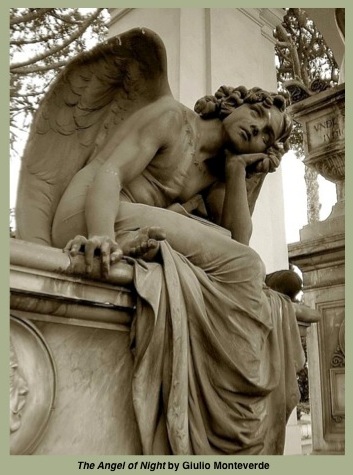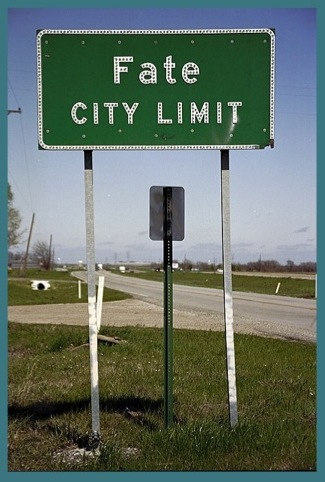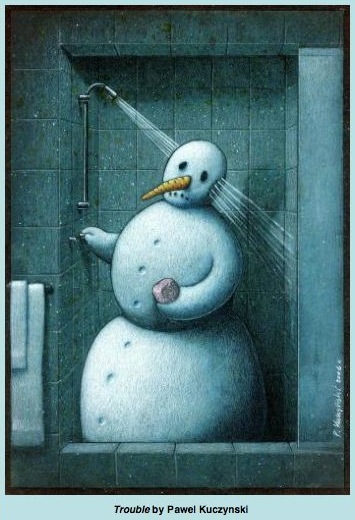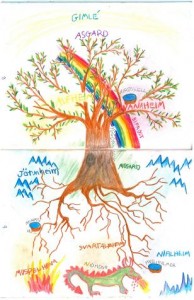From Memories, Dreams, Reflections by C. G. Jung, talking about when he was a young psychiatrist, circa 1908, feeling his way toward a new way of treating the mentally ill:
Another patient’s story revealed to me the psychological background of psychosis and, above all, of the “senseless” delusions. From this case I was able for the first time to understand the language of schizophrenics, which had hitherto been regarded as meaningless. The patient was Babette S….
She came out of the Old Town of Zürich, out of narrow, dirty streets where she had been born in poverty-stricken circumstances and had grown up in a mean environment. Her sister was a prostitute, her father a drunkard. At the age of thirty-nine she succumbed to a paranoid form of dementia praecox, with characteristic megalomania. When I saw her, she had been in the institution for twenty years. She had served as an object lesson to hundreds of medical students. In her they had seen the uncanny process of psychic disintegration; she was a classic case. Babette was completely demented and given to saying the craziest things which made no sense at all. I tried with all my might to understand the content of her abstruse utterances. For example, she would say, “I am the Lorelei;” the reason for that was that the doctors, when trying to understand her case, would always say, “I know not what it means” [the first line of Heine’s famous poem, “Die Lorelei”]. Or she would wail, “I am Socrates’ deputy.” That, as I discovered, was intended to mean: “I am unjustly accused like Socrates.” Absurd outbursts like: “I am the double polytechnic irreplaceable,” or, “I am plum cake on a corn-meal bottom,” “I am Germania and Helvetia of exclusively sweet butter,” “Naples and I must supply the world with noodles,” signified an increase in her self-valuation, that is to say, a compensation for inferiority feelings.
My preoccupation with Babette and other such cases convinced me that much of what we had hitherto regarded as senseless was not as crazy as it seemed. More than once I have seen that even with such patients there remains in the background a personality which must be called normal. It stands looking on, so to speak. Occasionally, too, this personality—usually by way of voices or dreams—can make altogether sensible remarks and objections. It can even, when physical illness ensues, move into the foreground again and make the patient seem almost normal.
I once had to treat a schizophrenic old woman who showed me very distinctly the “normal” personality in the background. This was a case which could not be cured, only cared for. Every physician, after all, has patients whom he cannot hope to cure, for whom he can only smooth the path to death. She heard voices which were distributed throughout her entire body, and a voice in the middle of the thorax was “God’s voice.”
“We must rely on that voice,” I said to her, and was astonished at my own courage. As a rule this voice made very sensible remarks, and with its aid I managed very well with the patient. Once the voice said, “Let him test you on the Bible!” She brought along an old, tattered, much-read Bible, and at each visit I had to assign her a chapter to read. The next time I had to test her on it. I did this for about seven years, once every two weeks. At first I felt very odd in this role, but after a while I realized what the lessons signified. In this way her attention was kept alert, so that she did not sink deeper into the disintegrating dream. The result was that after some six years the voices which had formerly been everywhere had retired to the left half of her body, while the right half was completely free of them. Nor had the intensity of the phenomena been doubled on the left side; it was much the same as in the past. Hence it must be concluded that the patient was cured—at least halfway. That was an unexpected success, for I would not have imagined that these memory exercises could have a therapeutic effect….
At bottom we discover nothing new and unknown in the mentally ill; rather, we encounter the substratum of our own natures….
When Freud visited me in Zürich in 1908, I demonstrated the case of Babette to him. Afterward he said to me, “You know, Jung, what you have found out about this patient is certainly interesting. But how in the world were you able to bear spending hours and days with this phenomenally ugly female?” I must have given him a rather dashed look, for this idea had never occurred to me. In a way I regarded the woman as a pleasant old creature because she had such lovely delusions and said such interesting things. And after all, even in her insanity, the human being emerged from a cloud of grotesque nonsense. Therapeutically, nothing was accomplished with Babette; she had been sick for too long. But I have seen other cases in which this kind of attentive entering into the personality of the patient produced a lasting therapeutic effect.






